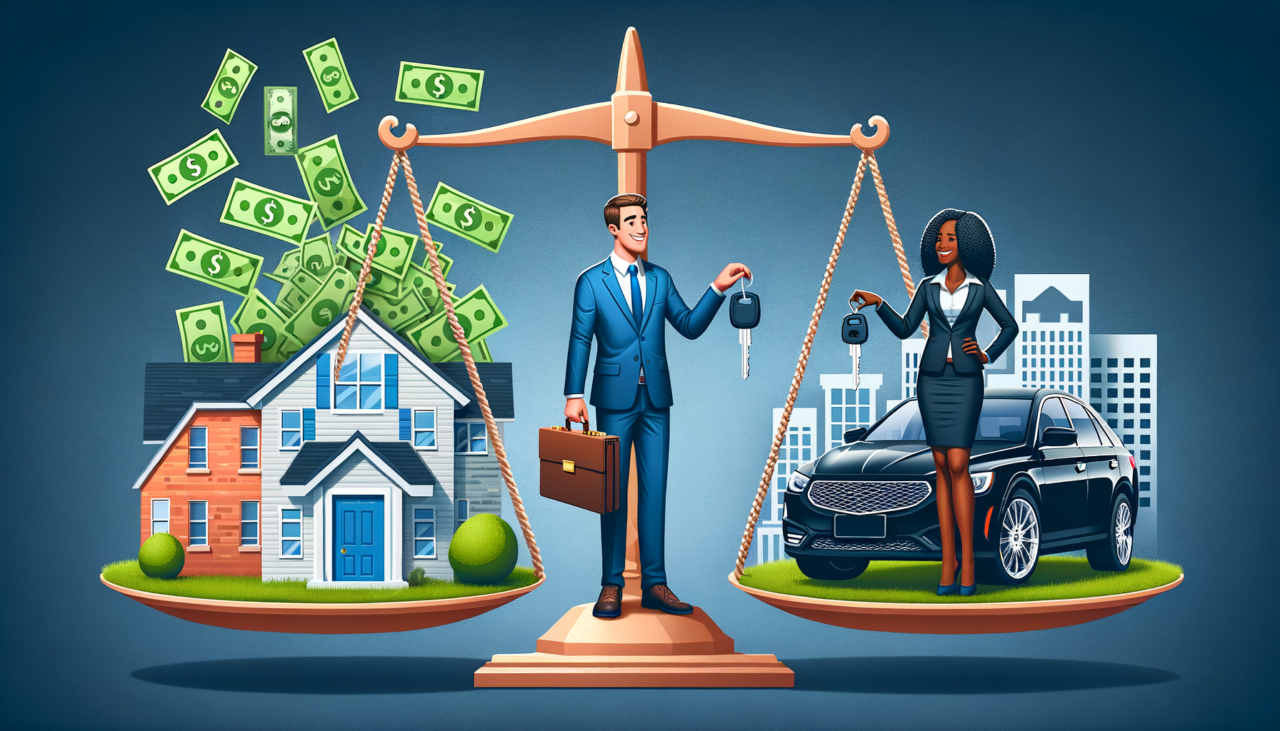G’day, folks! If you’re anything like me, you’ve probably found yourself scratching your head when it comes to making financial decisions, especially those involving loans and leases. As an Australian bloke in my mid-fifties, I’ve had my fair share of experiences with both. So, let’s dive into the nitty-gritty of loans and leases, unraveling their complexities with a touch of humor and a whole lot of clarity.
Understanding Loans and Leases
Before we jump into the nitty-gritty, let’s set the stage with a quick rundown of what loans and leases actually are.
Loan Characteristics
A loan is a financial arrangement where a lender provides a borrower with a specific amount of money, which is expected to be paid back with interest over a predetermined period. Here are some characteristics of loans:
-
Ownership: When you take out a loan for a car or a house, you gain ownership. It’s like buying a meat pie; once you’ve paid, it’s yours to enjoy or share with the dog.
-
Interest Rates: Loans can have fixed or variable interest rates. It’s a bit like the weather in Melbourne—unpredictable at times.
-
Equity Building: With every payment, you build equity. Think of it as slowly filling up a rainwater tank; eventually, it’ll be full, and all yours.
-
Long-term Commitment: Loans usually span several years. It’s akin to supporting the Aussie cricket team through thick and thin.
-
Flexible Use: Loans can be used for various purposes, from buying a home to starting a business. It’s your financial Swiss Army knife.
Lease Characteristics
A lease, on the other hand, is a contract where a lessee pays for the use of an asset owned by a lessor for a specific period. Here’s what you need to know about leases:
-
No Ownership: You’re essentially renting. Think of it like borrowing your mate’s surfboard—great for now, but not yours to keep.
-
Lower Initial Costs: Leases often require less money upfront. It’s like getting a discount at Bunnings on a Saturday morning.
-
Maintenance: Many leases cover maintenance costs. It’s like having NRMA on speed dial, but for your leased asset.
-
Shorter Terms: Leases typically last a few years, making it easier to switch to a new asset. It’s like trading in your old Commodore for a shiny new model every few seasons.
-
Mileage and Usage Limits: Leases often come with restrictions. It’s like being told you can only have one Tim Tam—hard to stick to, I know.
Comparative Table: Loan vs. Lease
Here’s a quick snapshot to help you compare the two options at a glance:
| Feature | Loan | Lease |
|---|---|---|
| Ownership | Yes, once paid off | No |
| Upfront Costs | Higher (down payment) | Lower (security deposit) |
| Interest Rates | Fixed or variable | Not applicable |
| Equity | Builds over time | Does not build |
| Term Length | Long-term (5-30 years) | Short-term (2-5 years) |
| Use Flexibility | Very flexible | Limited to lease agreement |
| Maintenance Costs | Paid by borrower | Often covered by lessor |
| Restrictions | Generally none | Mileage/usage limits |
| Upgradability | Requires selling/trading the asset | Easier to upgrade to new models |
| Tax Benefits | Possible tax deductions | Possible business tax benefits |
Real-Life Anecdotes
To add a bit of flavour, let’s share a couple of stories. My mate Bruce once took out a loan for his dream ute. It was a long commitment, but now it’s his pride and joy, complete with a custom roo bar. On the flip side, my neighbour Sheila loves leasing her cars. Every few years, she’s cruising around in the latest model without worrying about maintenance costs.
In conclusion, whether you’re drawn to the ownership and equity-building aspects of a loan or the flexibility and lower initial costs of a lease, the choice boils down to your personal needs and financial situation. Just be sure to read the fine print—it’s as important as knowing when to slip, slop, slap at the beach.
I hope this comparison helps you navigate the sometimes choppy waters of financial decisions. Remember, whether you’re loaning or leasing, always make sure it aligns with your lifestyle and goals. Cheers!

Comments (0)
There are no comments here yet, you can be the first!